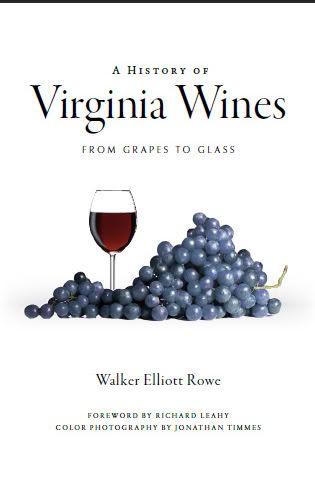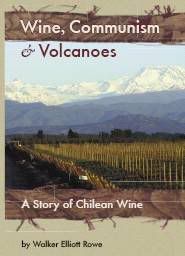
Take a look at the tired and worn pastures of Rappahannock, Fauquier, and Loudoun Counties with their compacted acidic soils whose green grasses belie an otherwise unhealthy condition that is bad for man and beast alike. Read the essay below on one man’s vision for healthier pastures then note at the bottom how Rosewood Hill Farm can assist you with your horse or cattle farm.
Gary Zimmer is a soil consultant, founder, and owner of Midwest BioAg. If he is not the best soil consultant in the USA he is certainly the most animated. At speeches he gave at the Acres USA annual conference last year he almost fell off the stage waving his arms and railing against what he calls enemy number 1: Kentucky 31 tall fescue grass.
Tall fescue grass is what covers most of the pastures here in Northern Virginia especially in what I like to call “fence and forget farms”. Kentucky 31 is a strain of tall fescue that was found growing in Kentucky. It was released by the cooperative extension office there in 1931. Farmers had noticed it and singled it out for during drought all the other grass had gone dormant but this grass was still bright green. It spread beyond Kentucky and is now considered an invasive weed that crowds out native species and contributes to the monoculture that organic farmers and environmentalists rail against.
Those of you in Virginia might have heard of Gary Zimmer for he was the principle speaker at last year’s Virginia Organic Grazing Workshop and Field Day held at Buck Hall and at a dairy farm in Upperville that had been rented by his son-in-law Kurt Klukus. Gary explained that on this farm the owner had sprayed Roundup on 800 acres of pasture to kill all of the fescue grass and replanted the farm with orchard grass and other more desirable species. But a few years later the fescue was back having crowded out the other varieties. (Gary Zimmer is also critical of Virginia horse farmers who mow their fescue and then truck in alfalfa, timothy, or other hay from the Midwest. It's a huge waste of money, elitist, and of course bad for the environment since it uses up much petroleum.)
People who breed horses know that you are not supposed to allow pregnant horses to graze tall fescue grass. The reason for this is the same endophyte fungus that give tall fescue its drought tolerance and resistance to cold weather can cause brood mares to abort their fetus.
Endophyte-infected tall fescue is bad for cattle too but it does not in most cases cause them to drop dead. Rather it simply slows their growth although it can cause certain health problems. Cattle farmers like to talk about how their cows are performing by measuring their daily weight gain or for dairy cows pounds of milk produced per day. A study from the University of Kentucky says that 85% of the tall fescue found in Kentucky is infected with the endophyte fungus (presumably Virginia pastures are similarly infected). Cows that graze endophyte-free tall fescue will gain an average of 2.1 pounds per day while those fed infected fungus gain an average of 1.4 pounds per day. So for ranchers that means lowered productivity.
Not all tall fescue is bad. It has good digestibility, is easy to establish, and of course is drought tolerant and not killed off by cold weather. Some farmers here in Rappahannock County have had trouble getting stands of orchard grass started, for example. For this reason an endophyte-free strain like MaxQ is preferred. Fescue and orchard grass both are cool season grasses meaning their growth for the most part comes in the fall and summer. If you want something growing in your pasture in the heat of summer you need to rotate your horses or cows onto fields of pearl millet, sorghum, and other warm season grasses. And rather than feeding your animals baled up hay for so many months of the year you could plant cold hardy forages like wheat winter and peas that will grow into December and then resume growth in early March when even fescue is still dormant.
This is the kind of variation preached by those who grow organically. On his Wisconsin farm Gary Zimmer rotates smalls grains, corn, annual and perennial rye and other grasses. He rails against conventional farmers who use too many chemicals and petroleum-based sources of nitrogen preferring instead an approach that is not quite organic, one that he calls “biological farming”. The goal is to improve the mineral content of the soil using naturally mined rock phosphate, gypsum, and other minerals and add to improve the biological content of the soil and nitrogen levels by cultivating cover crops. To do this he uses what he says is the premier shallow incorporation tool, the Howard Rotavator.
Gary produces bountiful crops of corn on his Michigan farm without adding supplemental nitrogen fertilizer which he says burns roots and kills earthworms. It is better, he says, to produce your own nitrogen by growing cover crops like annual rye grasses, clover, vetch, and then incorporating them into the soil. The best tool to do this is the Howard Rotavator. He uses it both to kill fescue grass and shallow incorporate cover crops to improve the soil.
Clyde Mortimer of Guy Machinery sells the Spanish-built Howard Rotavator from his offices in Illinois. He writes, “In 1912, A.C. Howard built the first conservation tillage tool over made. The Rotavator was designed to break virgin ground, without turning the soil over. A.C. Howard’s ‘Rotary Hoe’ was designed to undercut all unwanted weeds, grass, brush, and root structure free from the topsoil, and leave the residue on the surface so that sun and wind would kill all the vegetation.”
At Rosewood Hill Farm we have the heaviest duty Model 400 Howard Rotavator designed for “heavier tasks and specialized vineyard or orchard applications". We can rent you this rotary tiller or better yet let us design a program to improve your pastures for you. Send us your soil report and we will come over and rotavate all your endophyte-infected fescue and replant it with a combination of endophyte-free MaxQ fescue and red clover and recommend how you can improve your pastures organically without using petroleum-based fertilizers. Contact Walker Elliott Rowe at Rosewood Hill Farm for details. Email: werowe@walkerrowe.com .
Continue Reading...







